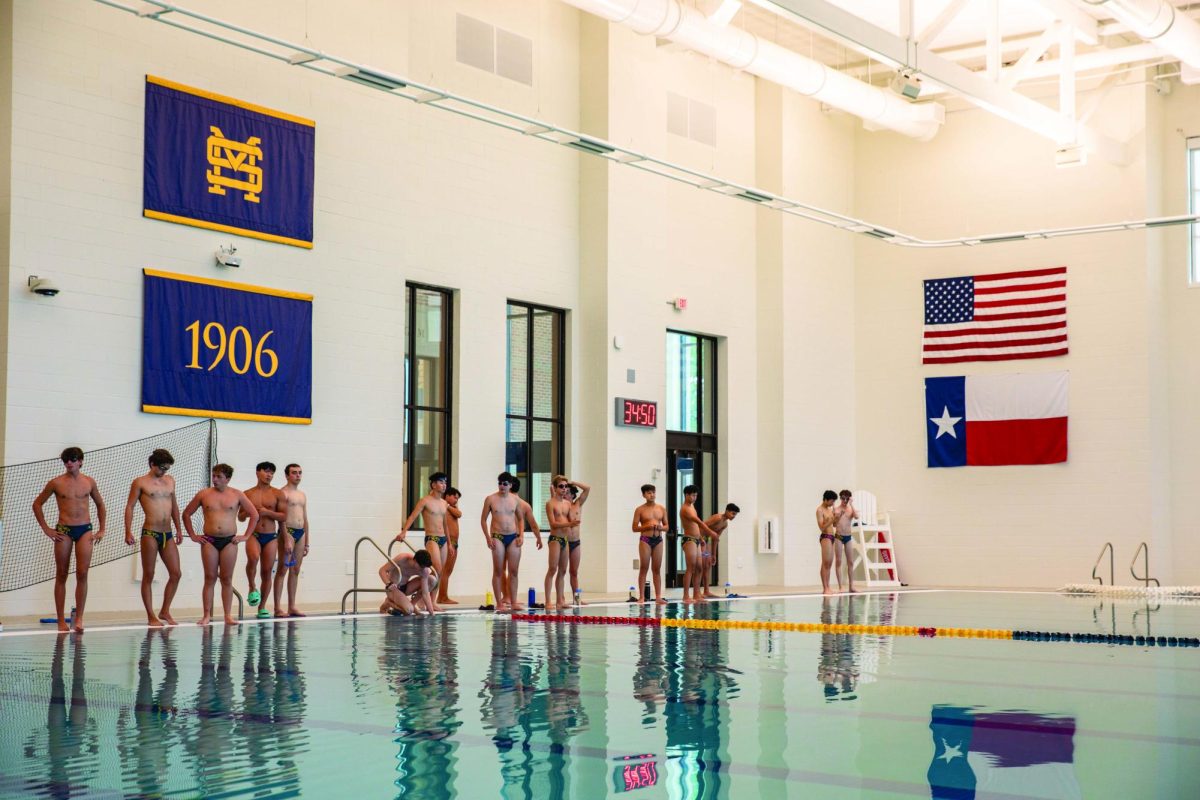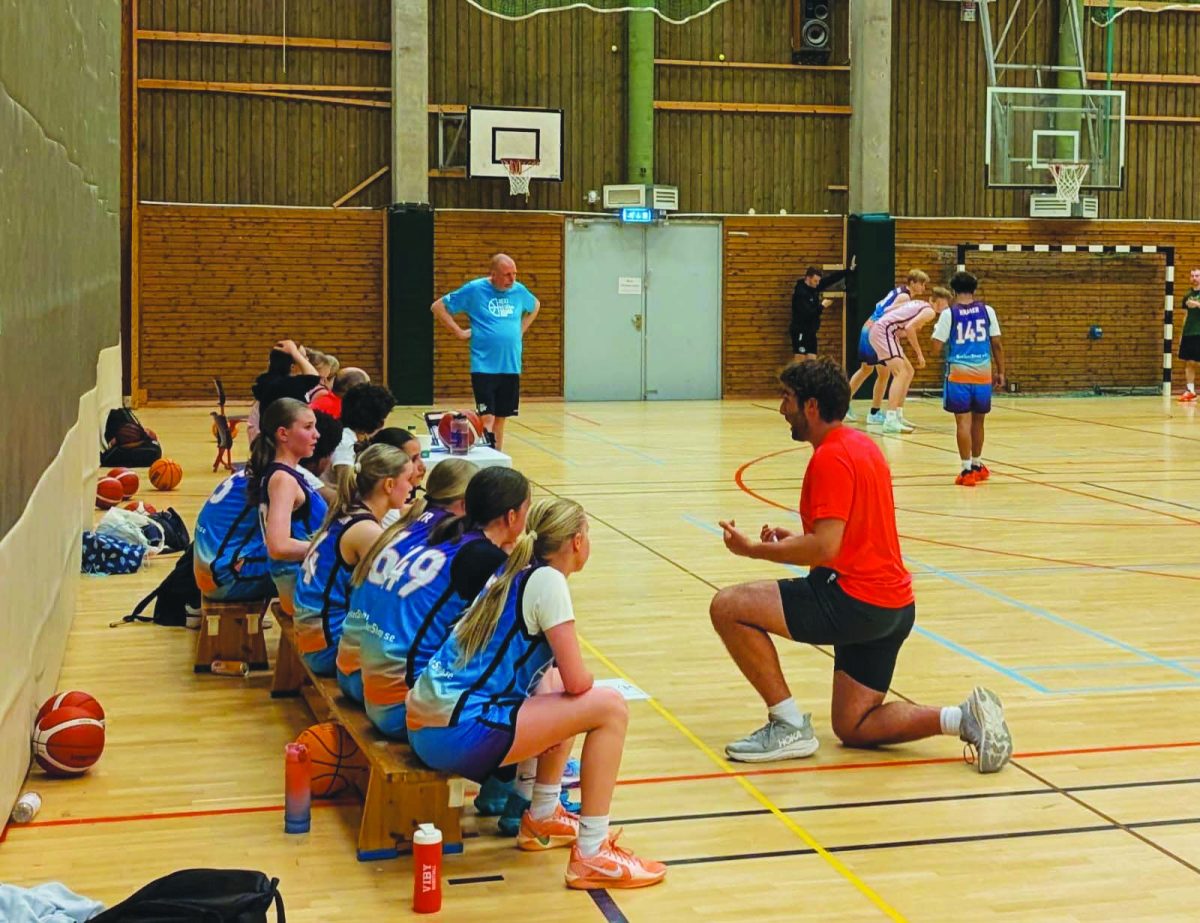It’s a constant challenge for athletes. The morning practices at the crack of dawn. Staying late after practice to get more reps; it’s exhausting, the extraordinary day-in and day-out grind.
Going the extra mile is what it takes to push any athlete from good to great. For most, it’s easy to put in the effort when they feel motivated. When they are at the top of their game. When they are in good health. When the end goal is right in front of their face.
The real challenge comes when that motivation leaves. The real struggle starts at 6 in the morning, alarm blaring. The bed feels too comfortable, you don’t feel well, you can put off the work for later. When you are feeling lethargic, lazy and unmotivated, discipline is what gets you out of bed. Discipline is what turns hard work into habit. For a hard working athlete, creating this consistent discipline requires them to push themselves past passion, transcending them into success.
This discipline, however, isn’t easily achieved–it’s the result of thoughtful, intentional efforts over time. Upper School Counselor Dr. Mary Bonsu believes if athletes can commit themselves to these efforts, then they can create room for improvement.
“Passion is that initial sort of emotional surge that you feel that allows you to really be motivated and excited about an endeavor,” Bonsu said. “Dedication is the decision that you make to commit to the action. So passion is an emotional process, whereas dedication is more of a thought process.”
Bonsu believes that by starting a difficult task with passion towards the process, anyone can develop a dedicated mindset.
“There’s this idea that your thoughts can lead you and then your emotions follow,” Bonsu said. “Your thought process can be the thing that helps you connect to the reason as to why you’re doing something, and eventually, a reason emerges, you are doing this because you have a sense of duty.”
This sense of duty could be to teammates, coaches, parents, or even to a commitment of completing a personal goal or task. Bonsu recognizes that while not every athlete is built to perform in the same way, all of them can benefit motivationally from setting both short and long term goals for the future, such as running faster, hitting harder, or just playing better.
“Oftentimes, we’ll set some sort of long term goal, or a short term goal. It might be tied to higher education, or the kind of level of achievements they’re looking for,” Bonsu said. “But, it really is realigning with your goals and then looking at your mindset, readjusting your expectations and having some level of faith in the process.”
Bonsu stresses the importance of believing in one’s self and in a sense of commitment towards any goal, even when it may seem mentally or physically impossible. Athletes dealing with motivational issues frequently visit with her to reorient their mindset and reset their expectations.
“I like to really dig down and see what it is that has diminished their motivation,” Bonsu said. “Sometimes they no longer enjoy the mechanical aspects of (the sport), or the limited prospect of being recruited at the collegiate level threatens their motivation.”
Losing motivation is a common struggle for athletes, and as both the Strength and Conditioning Coach and former Olympic athlete Kevin Dilworth fully understands the intense mental toll that constant dedication and practice can take, however, he also knows that getting over a weak mentality is incredibly rewarding for all athletes.
“You are the key to unlock every door of success that you want. You can’t put all your trust in other people or things or elements out there,” Dilworth said. “The main thing you have to do is believe it. The hardest thing for most athletes is to believe that they can do the impossible, but you could do it.”
It might be easy for some athletes to rely on their teammates or coaches to hold them to higher standards than they hold themselves, but Dilworth doesn’t think that should be the case. He prefers to see a self-motivated athlete that, while being supported by their peers, is still able to fully stand and perform on their own.
“I am 1% of their motivation. My 1% is, ‘yes, you can do it. I believe in you, I trust in everything you’ve done now,”’ Dilworth said. “The 99% is what you possess. You have to take hold of that, and you have to do something with it. You can add my 1% to it, but you gotta make sure of the things that you put in it.”
Dilworth’s coaching philosophy emphasizes the importance of personal accountability; forcing his athletes to get disciplined when their motivation may wane. For him, passion might get the ball rolling, but discipline is what carries him to the finish line.
“I see guys motivated. I don’t see guys being disciplined,” Dilworth said. “They’re motivated. They want to, because that’s where we’re at in this society. ‘Now. I want it now. But it can’t come now without the discipline of now later.”








